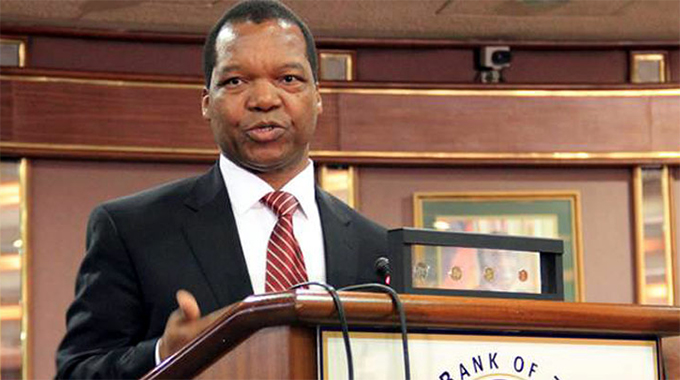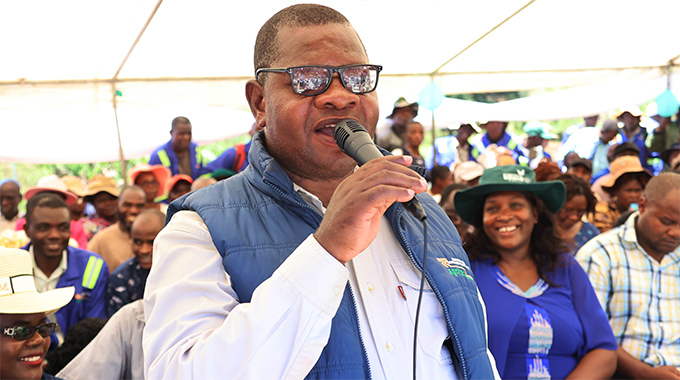Mangudya clears air on economic sanctions

Herald Reporter
ZIMBABWE remains under a punitive regime of economic sanctions that have negatively impacted the movement of funds and trading capabilities in the past two decades, Reserve Bank of Zimbabwe (RBZ) Governor Dr John Mangudya said.
Clarifying a statement, he issued on Monday in regard to sanctions, Dr Mangudya shot down wild claims by some media outlets that the central bank is being used to bust sanctions by noting that there are no sanctions on Zimbabwean gold and therefore no persuasion to circumvent that which does not exist.
This was quickly seized by the country’s detractors and excitable opposition elements who sought and claimed that there are no sanctions on Zimbabwe.
This is despite the fact that the country is under illegal sanctions from the United States, which were imposed in 2001, in the form of the Zimbabwe Democracy Recovery Act, which to this day seeks to reverse the land reform programme and give land bank to white former farmers.
In an interview, Dr Mangudya said Zimbabwe remains under sanctions that affect the movement of funds.
“Sanctions on Zimbabwe are through ZIDERA and augmented by OFAC through placing of entities on the designated list of sanctions. What this means is that whilst these sanctions are not directly on trade per se they negatively affect the movement of funds within the international banking system.
“The Zimbabwean banking sector has lost a substantial number of corresponding banking relationships over the past 20 years, through de-risking, because of the OFAC sanctions.
“OFAC sanctions also affect the smooth flow of funds across the borders as financial institutions are obligated to comply with OFAC sanctions. ZIDERA on the other hand is designed to put a credit freeze on official financial flows to Zimbabwe,” said Dr Mangudya.
Yesterday morning, Dr Mangudya told a breakfast meeting in Harare that allegations of money laundering through the RBZ, that were raised by some media organisations could not go unchallenged.
“The snippets for the documentary that were coming are not rumours or grapevine. When something like that is advertised, I will not sit down and wait when someone is demonising the central bank and Government of Zimbabwe. I am the custodian of the financial system in this country,” Mangudya said.
“Money laundering is serious. Even when people say I responded fast or I was supposed to wait, wait for what when the house is burning? You are told that there is an allegation of money laundering in your country and the Reserve Bank is the one cleaning it and you sleep comfortably waiting, that’s not acceptable. We are a central bank that has its own integrity,” said Dr Mangudya.
The US, through the Treasury Department’s Office of Foreign Assets Control administers and enforces its illegal sanctions on Zimbabwe using its laws and the enforcement can result in heavy civil penalties or criminal referrals.
Because of the sanctions, Zimbabwe’s access to international credit markets was blocked following the enactment of ZIDERA, its creditworthiness has declined as the country’s international financial risk profile escalated.
Zimbabwean companies, banks included and individuals have found it extremely difficult to effect payments through international payment platforms as these transactions are intercepted and blocked because of the US foothold on the global financial system.
Because of the sanctions, both companies and individuals have had their accounts frozen or have in the case of banks been fined millions of dollars for processing funds.
For instance, its public knowledge that Barclays Bank Zimbabwe was fined US$2,5 million for processing 3 transactions for a sanctioned entity. The Bank had to spend in excess of US$12 million to comply with further requirements placed on it by OFAC and the US Treasury.
Several companies and individuals have suffered the same fate where they are fined for transactions involving Zimbabwe, while the corresponding banking platforms have been closed.







Comments